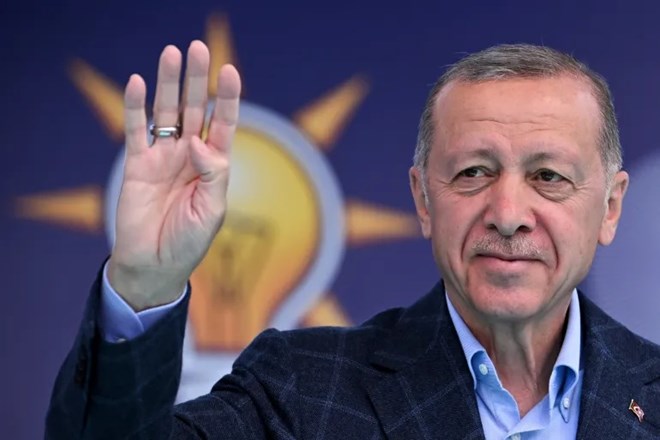
By Andrew Wilks
Sunday May 28, 2023
The incumbent went into the tense second round of voting with strong momentum to win a third presidential term.

If the unofficial results are confirmed, Turkish President Recep Tayyip Erdogan will be in power for another five years [Dylan Martinez/Reuters]
Turkish President Recep Tayyip Erdogan has won re-election, according to unofficial data from state-run Anadolu Agency, in a tense run-off after he failed to secure more than 50 percent of votes required for an outright victory in the first round on May 14.
With 97 percent of ballot boxes opened, Erdogan received 52.1 percent of votes in the second round on Sunday, beating his challenger, Kemal Kilicdaroglu, who won 47.9 percent.
The official Supreme Election Council has yet to confirm the results.
The victory would mean that Erdogan, 69, will extend his 20-year rule for another five years, and will also see him take Turkey past the centenary of the republic’s foundation in October.
advertisements
Erdogan took 49.52 percent of the vote on May 14, while his Kilicdaroglu received 44.88 percent.While the incumbent went into the run-off with a strong momentum and an edge over of his rival, his chances were bolstered by the endorsement of nationalist Sinan Ogan who came in third in the presidential race.
Ogan cited Erdogan’s Justice and Development Party (AK Party) winning a parliamentary majority as a reason for his decision. The AK Party and its allies secured 323 seats in the 600-strong parliament in simultaneous elections held on May 14.
Erdogan performed better than expected in the first round in regions hit by devastating earthquakes in February that killed more than 50,000 in the country, confounding critics as the government was criticised for its slow response to the disaster.
Ultimately, the man who has led Turkey for more than two decades fought off what many observers had said would be his toughest challenge yet as Kilicdaroglu formed a six-party alliance to defeat him that included the CHP, a nationalist party and former allies of Erdogan.
The president’s position had been precarious in light of Turkey’s deepening economic crisis, soaring inflation and the devaluation of the currency, as well as the energy behind the opposition campaign, especially among young people.
Kilicdaroglu headed a steelier campaign in the days leading up to the run-off, sharpening his rhetoric on the divisive issue of Syrian and other refugees and pledging to send them home in order to capture the votes of nationalists.
That was not enough to unseat Turkey’s longtime leader, who has been president since 2014, and was prime minister from 2003.
These elections have been billed as the most consequential since Turkey’s first fair multi-party polls in 1950 – boiling down to a choice between five more years of Erdogan, the country’s most electorally successful politician, or a new direction under an old party, the CHP, that has attempted to reinvent itself in recent years.
The 2023 elections took on extra significance as the year marks the centenary of the Republic of Turkey. The country’s founder Mustafa Kemal Ataturk also established the CHP, which governed under a largely one-party system for 27 years.
It was only the third time Turkey has directly voted for a president. Both previous contests had resulted in an outright victory for Erdogan in the first round, so a run-off vote has been unchartered territory for the country.